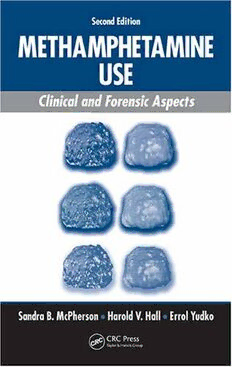
Methamphetamine Use: Clinical and Forensic Aspects, PDF
408 Pages·2008·2.914 MB·English
Most books are stored in the elastic cloud where traffic is expensive. For this reason, we have a limit on daily download.
Preview Methamphetamine Use: Clinical and Forensic Aspects,
Description:
The first wave of methamphetamine use began in the late 1980s and its prevalence has continued to rise across the United States and throughout the world. As with any harmful substance, its abuse has far-reaching ramifications that go beyond the destruction it causes to the human body. Written by a multidisciplinary team of experts, Methamphetamine Use: Clinical and Forensic Aspects, Second Edition examines meth use and abuse from clinical, forensic, and criminal justice perspectives. Updated and expanded to reflect changes in recent years, this volume covers virtually every aspect of this dangerous drug. The book begins with a history of drug control in America, then provides global perspectives on methamphetamine use. It explores biochemical aspects and includes a chapter on the methamphetamine analogue ''ecstasy.'' The text examines the effects of meth use on human behavior, with a special focus on empirical evidence of amphetamine use as a contributing factor in aggression. The authors discuss forensic issues related to methamphetamine use in chapters covering expert testimony, criminal responsibility, mitigation in sentencing, and competency to stand trial. The last section examines various treatment modalities. As methamphetamine grows once again in popularity, it is crucial that those who deal with the effects of it be well-informed about the dangers it poses. This volume provides a comprehensive, critical survey of the current knowledge regarding the use and abuse of this dangerous and ubiquitous substance.
See more
The list of books you might like
Most books are stored in the elastic cloud where traffic is expensive. For this reason, we have a limit on daily download.
